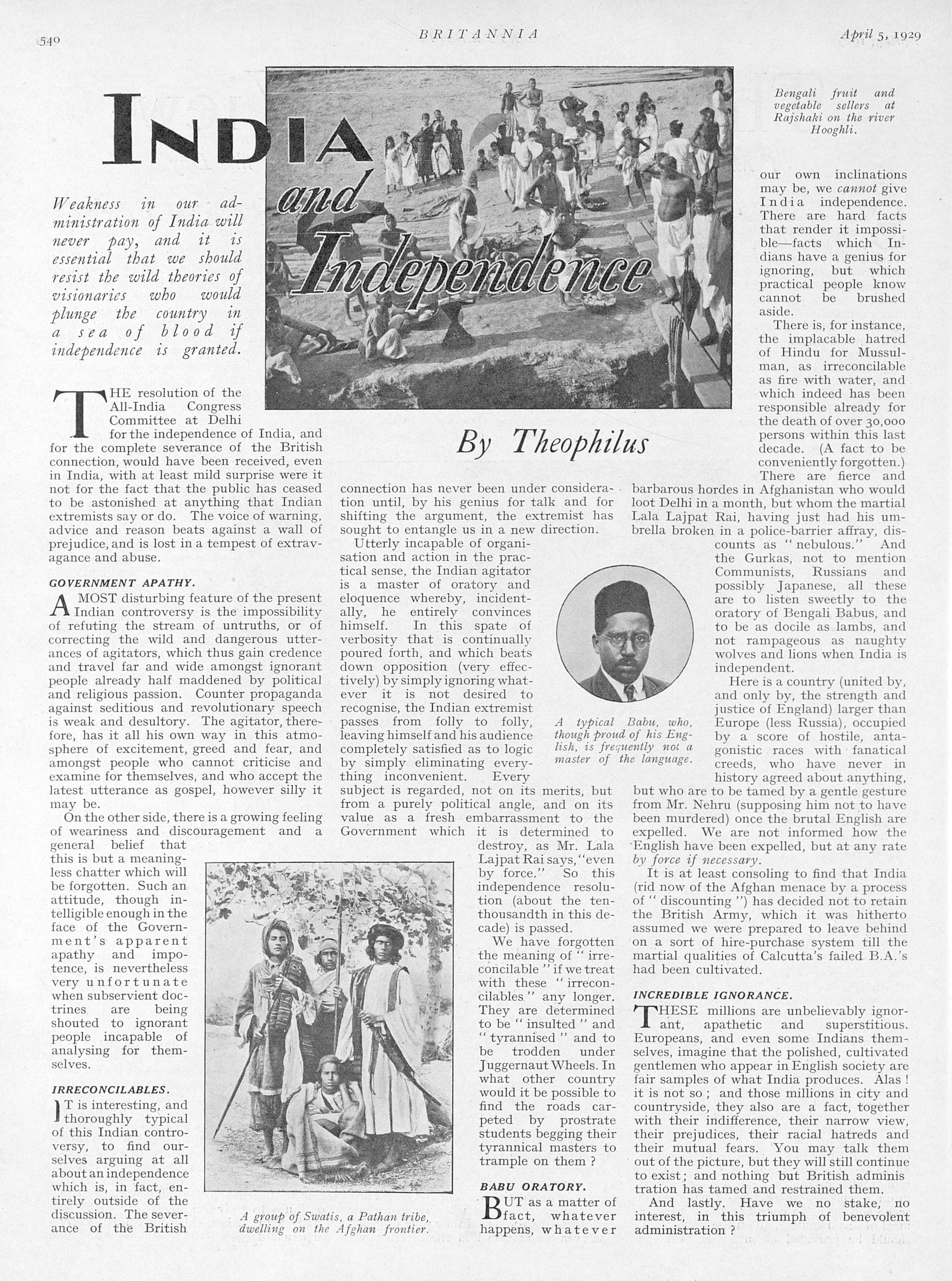
Our latest “Document of the Week” was chosen by our Editor, Nishah Malik. This week, as we draw near to the 78th anniversary of the partition of the Indian subcontinent, we take a look at an article titled “India and Independence” in Britannia. Published on 5 April 1929, the article appeared during a pivotal moment in India’s struggle for independence and reflected colonial anxiety in Britain in response to India’s growing demand for independence.
Written in response to the All-India Congress Committee's resolution in Delhi, which demanded complete severance from British rule, the article portrays Indian aspirations as both irrational and dangerous, insisting that “the public has ceased to be astonished at anything that Indian extremists may say”.
The author, Theophilus, criticised the inability of the Indian public to resist what he described as “the wild theories of visionaries who would plunge the country in a sea of blood if independence is granted”. Theophilus’ warnings about bloodshed and chaos if independence was granted were part of a broader attempt to justify continued imperial control at a time when its legitimacy was being challenged the most.
He depicts Indian nationalists not as legitimate political leaders, but as emotional agitators, claiming that “the Indian agitator seldom sees the ordinary facts of the case”. The article relies heavily on racist and paternalistic stereotypes, claiming that Indian society is inherently unfit for independence. Theophilus insisted that Indians “are unbelievably ignorant, apathetic, and superstitious”, and suggested that granting self-rule would result in disaster due to “facts which Indians have a genius for overlooking”. He pointed specifically to the religious divisions between Hindus and Muslims and the threat of attacks from Afghanistan, which he argued only the British were capable of managing. He concludes with a patronising remark: India “is a country united by, and only by, the strength and justice of England".
The piece does not just oppose Indian independence, it outright denies the possibility. Towards the end, the tone becomes more explicitly paternalistic. “Whatever happens, whatever our own inclinations may be”, Theophilus wrote, “we cannot give India independence”. His stance leaves no room for compromise, concluding that only British rule can prevent India from descending into “wolves and lions” chaos.
This article is a vivid example of how public figures in Britain sought to discredit and undermine the Indian independence movement during the 1920s. It reveals the deep racial, cultural, and political biases of imperialist thinking, while also highlighting the fear and insecurity provoked by the rise of anti-colonial resistance.
Where to find this document
It is from our collection, Britannia and Eve, 1926–1957, which includes over 38,000 images from 350 issues. Owned by The Illustrated London News, Britannia and Eve targeted a wealthy, conservative, and largely female readership. Throughout its existence, it maintained a particular emphasis on fashion, beauty, and the home. Visit the collection page to learn more.
